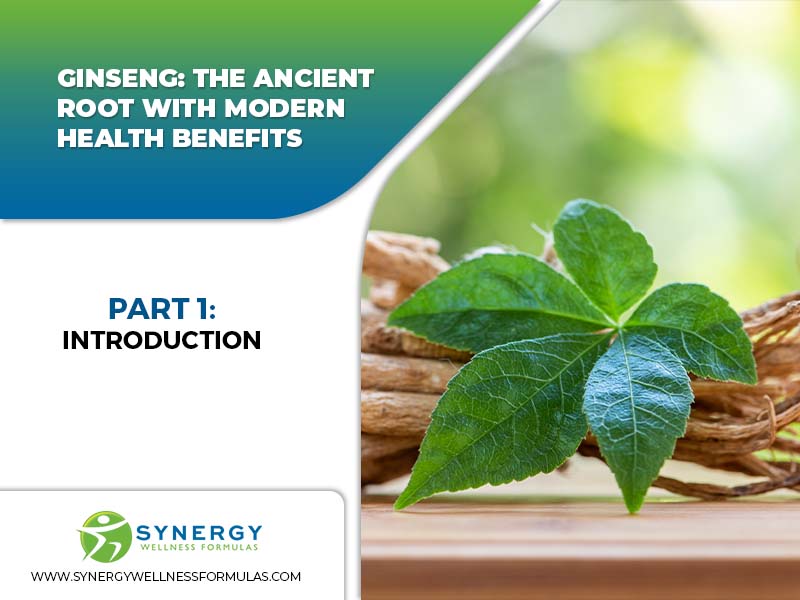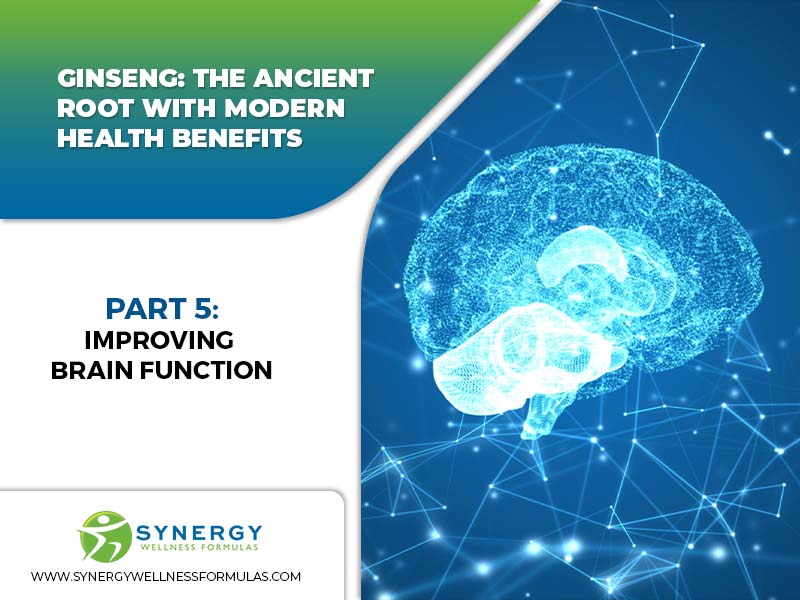Anxiety and stress can have a profound impact on our lives, leading to physical and mental health issues. Many of us turn to pharmaceuticals or other unhealthy methods in order to cope with these feelings. But there is a better way.
Ginseng is an all-natural remedy. It has been used for centuries in traditional medicine systems and may help reduce stress and anxiety, boost energy levels, improve brain function, support the immune system, and promote cardiovascular health. In this article, we will explore how ginseng can be used as part of an integrative approach to health care for natural relief from anxiety and stress.

1Introduction
Ginseng is a perennial plant that is native to East Asia and North America. The root of the plant is used in traditional medicine and has been used for centuries to treat a variety of health conditions. There are two main types of ginseng: Asian ginseng (Panax ginseng) and American ginseng (Panax quinquefolius).
Asian ginseng (Panax ginseng) is also known as Korean ginseng or red ginseng. It is considered to be the most potent type of ginseng. American ginseng (Panax quinquefolius) is also known as white ginseng. It is considered to be less potent than Asian ginseng but has a more calming effect.
Ginseng has been used to boost energy and stamina, improve brain function, support the immune system, reduce stress and anxiety, and support cardiovascular health. It is also commonly used as an adaptogen, a substance that helps the body adapt to stress. It is also used as an ingredient in many supplements, teas, and energy drinks.

2History And Overview Of Ginseng
Ginseng has been used for centuries in traditional medicine in East Asia and North America. It was first mentioned in Chinese medical texts dating back to the first century AD. It was traditionally used to treat a wide range of health conditions, including fatigue, stress, and various illnesses. It was also believed to have anti-aging properties and was used as a tonic to promote overall well-being.
Ginseng is a slow-growing plant and can take up to six years to reach maturity. The root is the part of the plant that is used medicinally and is typically harvested in the fall after the leaves have died back. Cultivating ginseng requires specific conditions, such as a hardwood forest with a cool, shaded understory and well-drained soil. Farming of ginseng is mostly in China, Korea, and some parts of North America.
Ginseng remains popular in traditional medicine and is also used as a dietary supplement in the form of capsules, teas, and extracts. The global ginseng market is currently valued at several billion dollars and is expected to continue growing in the coming years. The increasing popularity of ginseng is driven by growing consumer demand for natural health products and increasing awareness of the potential health benefits of ginseng.

3The Science Behind Ginseng’s Health Benefits
Ginseng contains a variety of active compounds, the most important of which are ginsenosides. These compounds are found in the root of the plant and are believed to be responsible for the majority of its medicinal properties. Other compounds found in ginseng include flavonoids, steroids, and polysaccharides.
The exact mechanisms by which ginseng exerts its effects are not fully understood. However, research suggests that ginsenosides may interact with various receptors in the body, including those involved in regulating the immune system, the nervous system, and glucose metabolism. Some studies also suggest that ginseng may have anti-inflammatory, antioxidant, and anti-cancer effects.
Ginseng has been studied for a variety of health conditions, including cancer, diabetes, and cardiovascular disease. Some studies have found that ginseng may help improve immune function, reduce stress, and improve cognitive function. Some studies have found that ginseng can have effects on blood sugar levels and blood pressure and that it can help improve sexual function in men.

4Boosting Energy And Stamina
Several studies have found that ginseng may help improve physical endurance. For example, research suggests that taking ginseng supplements may help improve muscle strength and endurance, reduce muscle damage, and reduce fatigue. Some studies also suggest that ginseng may help improve athletic performance.
Ginseng is also believed to have anti-fatigue effects and is commonly used as a natural remedy for fatigue and stress. Some studies have found that taking ginseng supplements may help reduce mental fatigue, improve mood, and reduce the effects of stress on the body. Since ginseng is commonly used as a natural remedy for fatigue and stress, it has been used as a supplement for athletes. Some studies have shown that ginseng can help improve physical endurance, muscle strength, and endurance, reduce muscle damage and fatigue, and improve athletic performance.

5Improving Brain Function
Ginseng is believed to have cognitive-enhancing effects and is commonly used as a natural remedy for memory and cognitive impairment. Studies have found that taking ginseng supplements may help improve memory and cognitive function, particularly in older adults or in those with cognitive impairment. Studies have found that ginseng can improve attention, working memory, and executive function. It can also improve cognitive performance in healthy individuals, but the effects may vary based on the type and dosage of ginseng used. Additionally, more research is needed to understand the long-term effects of ginseng on cognitive function.
Ginseng may also have positive effects on mood and mental well-being. Studies have found that ginseng may help reduce symptoms of anxiety and depression. It is also believed to have a calming effect, which may help promote feelings of well-being. Studies have shown that ginseng may help reduce stress and anxiety by regulating the levels of stress hormones in the body. It may also have an effect on neurotransmitters, such as dopamine and serotonin, which play a role in regulating mood.

6Supporting The Immune System
Ginseng is believed to have immune-boosting effects and is commonly used as a natural remedy to support the immune system. Studies have found that ginseng may help improve the function of immune cells, such as T cells, B cells, and natural killer cells. This can help the body fight off infections and diseases more effectively.
Ginseng is also believed to have anti-inflammatory effects. Studies have found that ginseng may help reduce inflammation in the body, which can help improve overall health and reduce the risk of chronic diseases, such as cancer, heart disease, and diabetes. Additionally, some studies suggest that ginseng may help reduce the symptoms of inflammatory conditions, such as rheumatoid arthritis. Ginseng’s potential immune-boosting and anti-inflammatory effects have been investigated as a potential natural treatment for immune-related conditions, such as cancer, autoimmune diseases, and infections. It’s vital to note that ginseng should not be used as a substitute for medical treatment and should always be used under the guidance of a healthcare professional.

7Reducing Stress And Anxiety
Ginseng is believed to have stress-reducing effects and is commonly used as a natural remedy for stress and anxiety. Studies have found that ginseng may help regulate the levels of stress hormones in the body, such as cortisol, which can help reduce the effects of stress on the body. Some studies also suggest that ginseng may help improve the function of the hypothalamic-pituitary-adrenal (HPA) axis, which plays a key role in the body’s response to stress.
Ginseng is also believed to have anxiolytic effects, which means that it may help reduce anxiety symptoms. Studies have found that ginseng may help reduce symptoms of anxiety, such as worry, tension, and nervousness. It’s also been found that ginseng can help reduce symptoms of GAD (generalized anxiety disorder) and panic disorder. Ginseng’s potential stress-reducing and anxiolytic effects have been investigated as a potential natural treatment for stress-related conditions, such as anxiety and depression. As always, it’s important to consult with a healthcare professional before taking ginseng supplements, especially if you have a pre-existing medical condition or are taking any medication.

8Supporting Cardiovascular Health
Ginseng is believed to have cardiovascular-protective effects and is commonly used as a natural remedy to support cardiovascular health. Studies have found that ginseng may help lower blood pressure by dilating blood vessels and increasing blood flow. Additionally, some studies suggest that ginseng may help improve the function of the endothelium, the lining of the blood vessels.
Ginseng is also believed to have cholesterol-lowering effects. Studies have found that ginseng may help reduce total cholesterol and LDL cholesterol levels, which can help reduce the risk of heart disease. Additionally, some studies suggest that ginseng may help increase HDL cholesterol levels, which is often referred to as “good” cholesterol because it helps protect against heart disease. Ginseng’s potential cardiovascular-protective effects have been investigated as a potential natural treatment for cardiovascular conditions such as hypertension and hyperlipidemia. It’s vital to note that ginseng should not be used as a substitute for medical treatment and should always be used under the guidance of a healthcare professional.

9Conclusion
Ginseng is a perennial plant that has been used for centuries in traditional medicine to treat a wide range of health conditions. The root of the plant contains active compounds, such as ginsenosides, which are believed to be responsible for the majority of its medicinal properties. Studies have found that ginseng may help boost energy and stamina, improve brain function, support the immune system, reduce stress and anxiety, and support cardiovascular health.
Ginseng has been traditionally used in traditional medicine systems and has been gaining popularity in integrative medicine. Integrative medicine is a holistic approach to health care that combines conventional medicine with complementary and alternative medicine (CAM). Ginseng can be used as a complementary treatment alongside conventional medical treatments, but it’s important to consult with a healthcare professional before using ginseng as a supplement.
In conclusion, ginseng is an all-natural remedy with a long history of use in traditional medicine. Studies suggest that it may help reduce stress and anxiety, boost energy levels, improve brain function, support the immune system, and promote cardiovascular health. With the guidance of a healthcare professional, you can incorporate ginseng into your integrative approach to healthcare for natural relief from anxiety and stress. By understanding how this ancient medicinal plant works on our bodies, we can take control of our well-being and find effective solutions to managing our mental health naturally. Ginseng has been used by many cultures around the world for centuries due to its potential therapeutic benefits – now, science is beginning to catch up!











